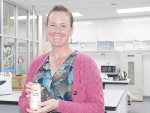Is there a “seismic” shift in food choices and a demand for healthy, chemical free choices with transparency about where the food is sourced?
Or is there a need to push the boundaries on all technologies including GMOs to feed the predicted 9 billion world population by 2050?
Are the above consumer pressures directly opposed, or will new thinking and technologies help achieve both aims?
These were some of the topics explored at the Alltech REBELation Symposium in Lexington, Kentucky, which offered 11 symposia in three tracks (agriculture, business, and food and beverage) and featured 121 speakers. Rural News attended the event courtesy of Alltech NZ.
Several key themes emerged in agricultural sessions: the importance of branding; the push by consumers for more knowledge about their food, for health and well-being and sustainability; the increasing globalisation of food trade; the need to feed growing populations; and the role of technology in all those areas.
Former US Secretary of State Colin Powell recalled his first trip to China 45 years ago as a young officer. He visited different villages and asked families what they wanted in life; it was always a bicycle, a sewing machine and a radio. That was the limit of their aspiration.
Now 45 years later the country has brought 400 million people out of poverty. Eastern Europe, Asia and increasingly Latin America and parts of Africa are also reducing poverty. They now want cars, smartphones and computers.
“But above all they want a better diet, they want more protein in their diet.” It has created a massive demand for foodstuffs. But he warned that every business from big corporations to individual farmers was a brand, and needed to protect that brand.
Jim Stengel, former global marketing officer at Procter & Gamble, said brands with a higher purpose resulted in three times higher sales. “If you want to start a brand today, it must not only have purpose but an ambitious purpose.” He asked people to look at whether there was a deep sense of humanity in their organisation or business. Empathy was needed to operate with customers.
Jerry O’Callaghan, investor relations officer with JBS, a leading meat processing company, said many beef producers in many parts of the world were still sending the product out unbranded, yet it was a precious item on restaurant menus and in people’s homes.
In Brazil about three-four years ago JBS began differentiating their product from the mainstream by telling about origin, hygiene standards, sustainability and how the supply comes through the market. At least $20 million was spent last year on marketing the product in Brazil.
Brand commands at least a 5% price premium, O’Callaghan said. The Three Boy brand in Brazil has become a symbol of quality. Branded beef needs to become more common to bring out the value of what producers do for the consumer. There is an opening of trade channels between China and Brazil and China and the US. As incomes grow, beef is something people aspire to before they buy new cars or smartphones.
“The first thing they want to do is eat something of perceived better quality. Beef is an item that people always aspire to.”
With suppliers in Brazil’s north-west, JBS uses satellite imagery to monitor the properties from which they buy cattle: they take pictures every month and superimpose them to detect deforestation. They suspend buying product from such a property until they get paperwork to prove the tree felling was done legally. “That is a cost to our business but it becomes a value to our business… increasing the value of our products,” O’Callaghan says.
Karl Dawson, chief scientific officer at Alltech, said the era for the indiscriminate use of antibiotics and antimicrobials in animal production is over. Resistance to antibiotics is real: 23,000 deaths a year around the world in 2013 can be attributed to antibiotic resistance and four times more antibiotics are used on livestock than on humans. Every major food company is developing policies to address the issue and the US government plans intervention during the next two years. It affects everyone in livestock production.
Walter Robb, co-chief executive in the major US organics chain Whole Foods Markets, said choices in foods are now in the “court of customer response”. He sees a “tectonic shift” in ideas about the sourcing and quality of food that he has never seen in his 35 year career as a retailer.



















